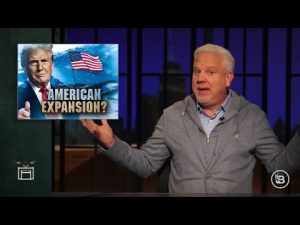In recent discussions surrounding immigration policy, there have been significant developments that intersect deeply with the values held by many in the evangelical community. The current administration has directed Immigration and Customs Enforcement (ICE) agents to have increased access to churches, hospitals, and schools for the purpose of arresting individuals engaging in serious criminal activities. This move raises important questions regarding the protection of vulnerable individuals within faith-based communities and the broader implications of sanctuary cities and the role of faith in public life.
Evangelicals have long held a commitment to protecting the sanctity of life and the welfare of children. The current directive from the administration is aimed at removing individuals who present a danger to communities, such as human traffickers and violent criminals. This focus aligns with evangelical values that promote the safety and well-being of all people, especially children. Many faith leaders agree that there should be no safe haven for those who would harm others, regardless of their immigration status. Understanding that churches are places of refuge, the intention behind this directive emphasizes accountability for those who commit crimes, thereby reinforcing the protective role that the church is meant to play in society.
However, as faith leaders express their concerns, there is a palpable sense of fear within communities about the targeting of innocent individuals. Reports have indicated a drop in church attendance as some congregants worry about immigration enforcement disrupting their worship and community life. This fear is compounded in sanctuary states and cities, where policies may shield undocumented individuals from deportation. Such environments create an additional layer of complexity as pastors navigate the very real concerns of their congregations while holding firm to their beliefs about compassion and support for all individuals.
The evangelical community is uniquely positioned to engage in this conversation, advocating for a nuanced approach that balances justice and mercy. It is vital for church leaders to communicate clearly that the intention of the policy is not to harm families who have been established for years in their communities. Instead, it serves to target only those who have committed heinous acts. Leaders are encouraged to remind their congregations that real hope and healing come from building a compassionate community that stands against crime while supporting those who seek a better life.
Additionally, evangelical leaders play a crucial role in dispelling misinformation that can proliferate in times of uncertainty. By sharing accurate information regarding the operations of ICE and the focus of their efforts, pastors can help ease fears and encourage community members to remain active in their faith. This experience presents an opportunity for churches to reinforce their mission to be places of hope, safety, and truth, drawing more individuals into a supportive community rather than pushing them away.
As discussions about these policies continue, the involvement of faith leaders in dialogues with political leaders is essential. Many are advocating for alternatives to sanctuary policies that protect vulnerable individuals without creating loopholes for those with serious criminal intentions. It is important for pastors to express their concerns while also working toward solutions that reflect the gospel message of love and redemption. This ongoing conversation serves as a testament to the critical intersection of faith, morality, and governance in shaping a society that upholds the values of justice for all, especially for the most vulnerable among us.







